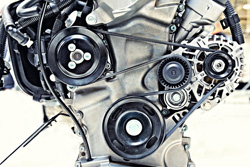Sophisticated sensors to improve motor performance
Electric motors, such as those in electric cars or those powering electronic devices, are the driving force behind equipment of all sorts. Accurate manipulation of these motors is necessary to ensure smooth functioning and precise control of speed, force, power and energy savings. Normally, these motors are controlled by sensors that monitor the electric current. The high density of sensors often required and any temperature instability present can wreak havoc with these systems, particularly in industrial applications. To solve this problem, the EU-funded IHACS project is developing highly compact and efficient sensors that are self calibrating. The technology of these sensors is based on the complementary metal-oxide semiconductor (CMOS), building on breakthrough conductors founded a century ago by physicist Edwin Hall. The new semiconductors developed by the project team have no ferromagnetic parts and are unaffected by fluctuating temperatures. The team is ensuring that the sensors will work in an environment that has any temperature with guaranteed stability between minus 25\;ºC and 150\;ºC. They can be mounted significantly closer to motors and related equipment, a feature which reduces size. In more technical terms, the new sensors are capable of much more sophisticated magnetic field filtering and sensitivity boosting. IHACS is also integrating the new sensors in very small chips, yielding improved spatial sensing, lower costs and easier reproducibility. The project has already developed the final version of the CMOS magnetometer-related sensor required to realise this initiative. Once the technology is fully exploited, the sensors are expected to enable a host of motorised equipment to work more efficiently and economically.







